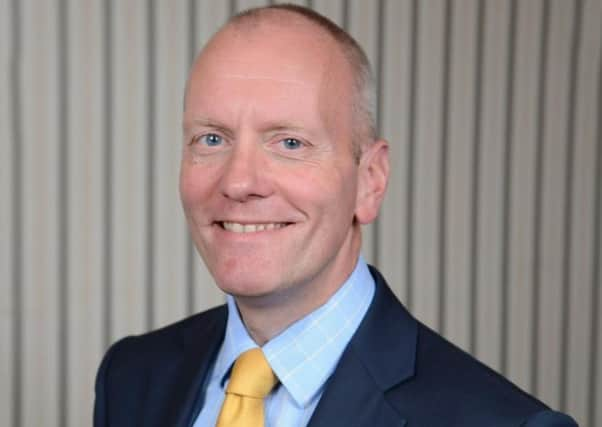Lincolnshire business adviser says new tax rise for health and social care will protect the wealth of elderly ‘too much’


Prime Minister Boris Johnson has proposed the new health and social care levy which will involve a 1.25 percentage point rise on the current National Insurance Contributions to fund a £36bn package over three years to help clear the NHS treatment backlog due to the Covid pandemic and reform social care.
In total, 317 MPs, all Conservative, voted in favour of the motion, 248, including five Conservatives, voted against the plan.
Advertisement
Advertisement
Social care will receive just £5.3bn in the first three years of the levy. The rest of the £36bn will go to the NHS to clear the Covid backlog.


The new tax will see employees, employers and the self-employed pay the additional National Insurance from April 2022. It will come out of employees’ wages, with employers paying extra on top for staff and the self-employed will pay on profits.
Those earning below £9,564 do not have to pay National Insurance and will avoid the new levy. It will then become a separate tax on earned income from 2023.
The government has been criticised for making it unfair on lower incomes and the younger generation. Currently workers pay 12 per cent NI on earnings up to £50,268. Above that the amount drops to a rate of two per cent, so the more you earn, the lesser proportion of your income you end up paying.
Advertisement
Advertisement
Critics say it will shield older people from paying more from their savings - no matter how much they have earned and accrued, as from October 2023, in England people will not pay no more than £86,000 in care costs, excluding accommodation and food.
Home From Home Care provides social care to adults with learning difficulties and complex needs including autism, epilepsy and other health and mental health issues. It has 11 care homes across Greater Lincolnshire, including sites at Ruskington and Dorrington.
Managing Director Paul de Savary said: “The good news is that after 20 years, the government has made a decision. However, the political expediency of packaging social care as part of an NHS focus means that the NHS will consume most of the funds, but at least it is the start of a process.
“The bad news is that it offers no immediate help for the critical staffing situation exacerbated by vaccine refusal and the serious image problem that’s caused by underfunding. The despair amongst other providers is shocking with demoralised management who feel abandoned by government ministers’ repeated failure to comprehend the magnitude of the ‘now’ issues and act with agility. With no firm promise of new funding for social care, even years down the line, this does not bode well.”
Advertisement
Advertisement
He added: “Although Home From Home Care is affected by tight staffing, we work hard to fight against the negative perceptions of care work by ensuring all our people are well paid, with great opportunities for progression and with a supportive system in place for employee wellbeing. However, that’s only possible thanks to our unique, data-driven model of care which sets us apart from all other providers, so I worry about how organisations across our sector will manage without immediate government support and with only the vague prospect of additional funding in years to come.”
With one of its main offices in Sleaford, Duncan & Toplis is one of the largest accounting and business advisers in the East Midlands, supporting more than 12,000 businesses and individuals with a wide range of services, including 45 care homes in the region.
Head of tax at Duncan and Toplis, Nicholas Smith has his reservations about the plan and said: “My initial thoughts are that we are in danger of protecting the wealth of the elderly too much. One has to wonder why the wealth of older people shouldn’t be used to fund long-term care, because this leaves some people to inherit substantially more than others who aren’t so fortunate.
“As businesses are recovering from the pandemic, it’s not a good time to increase the national insurance cost for businesses and it seems harsh on employees to bear so much of the burden.
Advertisement
Advertisement
“While it may seem controversial, a more general increase in income tax, in addition to the dividend tax increase would be a better alternative as it would spread the load across a greater base and because it includes all types of incomes such as pensions and property rental income.”
Mr Smith added: “It seems impossible to grasp, with difficulties in assessment and collection, but the government is shirking a closer look at a wealth tax, which, in theory at least, would seem to be the fairest way to pay for long term health care.”
The health and social care levy will also be extended to those over state pension age and on dividends in an attempt by Chancellor Rishi Sunak to make it fairer.
However, the independent Institute for Fiscal Studies said “this remains a tax which will be overwhelmingly borne by workers”.
Advertisement
Advertisement
The levy will fund a cap of £86,000 on lifetime care costs from October 2023, with government support to kick in for anyone with assets under £100,000.
There are no guarantees of how the cash will be allocated beyond 2025, which has raised concerns that the NHS could continue to take up the cash generated by the levy, potentially causing the Government to raise taxes further.